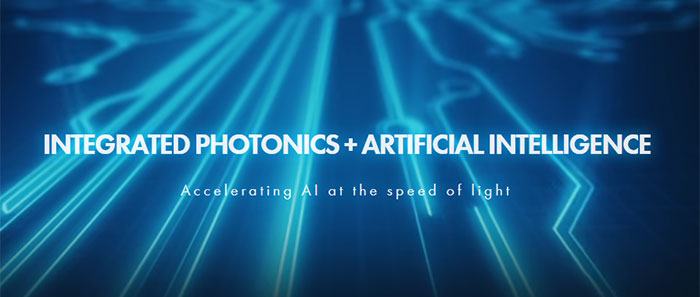We have previously reported upon optical computing advancements such as chip-scale optical computing enabled by squeezing light, and the pioneering of on-chip optical links. In summary, optical technology applied to computer chips offers a lot of theoretical attractions such as amazing transfer speeds and low latencies, with reduced power consumption.
Now an outfit called Lightelligence claims to have released a prototype of an AI accelerator chip that includes photonic circuits for dramatic gains in the processing of these types of calculations. Lightelligence has about 20 employees including veterans from distinguished universities, and industry experience in the shape of former AMD senior fellow Maurice Steinman, and Google and Microsoft engineer Gilbert Hendry.

The headline claim of Lightelligence, as reported by VentureBeat, is that its prototype optical AI chip improves latency by up to 10,000 times, and its power consumption is "orders of magnitude" lower than traditional silicon chips.
Lightelligence's prototype comes in the form of a small PCB that slots into existing machines at the network edge. Attractive qualities of the device, beyond those headliners stated above, are; reduced energy wasted as heat, plus temperature, noise, and EM stability.
MNIST, a benchmark machine learning model that uses computer vision to recognize handwritten digits, was demonstrated by Lightelligence, running on its accelerator. In tests, its matrix-vector multiplications and other linear operations ran "roughly 100 times faster than the state-of-the-art electronic chips". This in turn is "100,000 times faster than the system demonstrated in our Nature Photonics paper" (PDF) and much smaller than that device - which was a proof of concept from the research team behind the prototype.
The Lightelligence developers say that their AI accelerator chip will eventually ship with software to make the device compatible with the likes of Google Tensorflow, Facebook Caffe2 and Pytorch, and others. VentureBeat notes that Lightelligence competes with another well-funded startup called Lightmatter.






